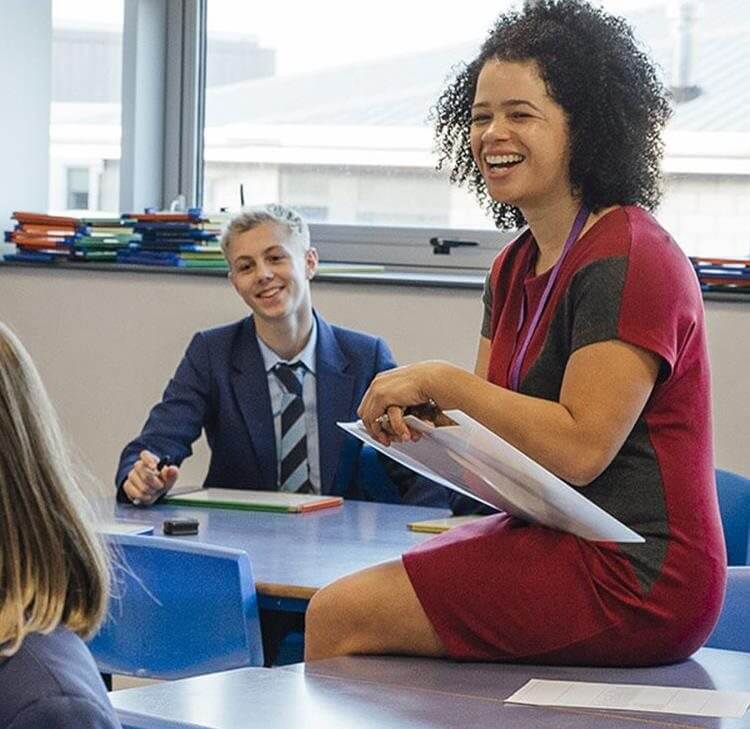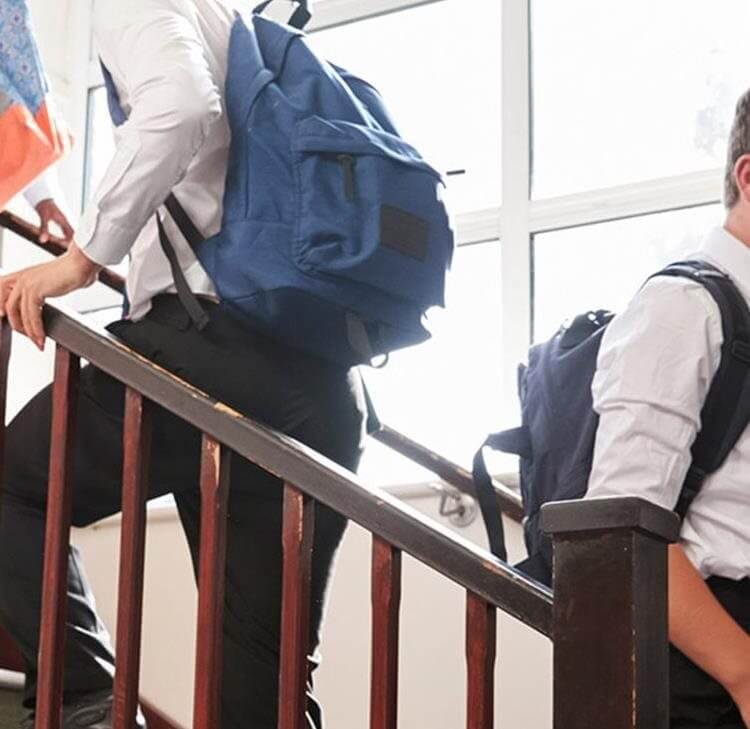Mental health in times of Covid-19
It will be important to include an element of mental health awareness and planning in the return to school provisions being compiled as part of the requirement for the prevention of mental health disorders.
As a general rule, 20% of social services referrals come from schools, especially where the emphasis is on early intervention. This means that while children have been absent from school, there will be children that have not received the help that they might otherwise have done.
It is also known that mental health disorders increase where families are struggling. This will be particularly applicable at the moment, where families are struggling to cope with the direct effects of the virus, and in the aftermath when unemployment and job and income uncertainty is set to increase.
Disruptions to daily routines and lack of access to safe support services and resources will undoubtedly have impacted on pupil mental health, whether this is making known conditions worse or triggering new ones. School routines have long been important ways for pupils to cope with daily life struggles and the past few months have seen that change dramatically. The uncertainly will have an impact on young people’s mental health.
The Department for Education (DfE) guidance on returning to school recognises Covid-19 as a potentially negative experience and a distressing life event, whether through isolation or bereavement. The key role for schools will not have changed; the first one being the requirement for the prevention of mental health disorders, and the second being the identification of the children who may be struggling to cope with the situation. This may involve making a judgement as to whether disruptive or withdrawn behaviour is symptomatic of an issue or just part of being away for such a long time and taking time to adjust back into school routines and expectations.
It will be important to include an element of mental health awareness and planning in the return to school provisions being compiled as part of the requirement for the prevention of mental health disorders. For those children continuing to be educated remotely, their wellbeing will include maintaining engagement and enthusiasm. Record the steps and considerations that go into planning how to do this, e.g. by not setting unrealistic work expectations for students to avoid making them feel that they are not keeping up. A joined-up approach between class teachers and pastoral support could help identify and support children that have returned to learning in school and those continuing to learn online.
Remember that anxiety may be classed as a disability and not giving appropriate consideration to it may have negative repercussions. From a practical point of view, a log of children presenting challenging behaviour is going to be very important. A child that shows no symptoms of issues may claim later that poor behaviour was linked to mental health issues associated with Covid-19. If you have a clear record of behaviour presentation then you will be better placed to deal with any potential claims.
As with other aspects of school life affected by Covid-19, the governing body should consider whether there are any adjustments to be made to any existing policies, including your mental health policy (if you have one) or reviewing those policies with mental health concerns within them. Records of considerations/deliberations and adjustments will all be important records of the school taking appropriate steps to manage any potential issues. This will stand you in good stead in the event of any claims that the school did not seek to reduce, identify or manage the stress of the epidemic.
Our experts have put together the following series of top tips to help you manage mental health your schools. However, if you would like to speak to us with regards to a specific case please contact us for tailored advice and guidance.
Contact

Laura Murphy
Associate
Laura.murphy@brownejacobson.com
+44 (0)115 908 4886
Related expertise
You may be interested in...
Online Event
Wellbeing and financial considerations – practical solutions for challenging times
Legal Update
be connected - Spring 2023
Legal Update
Teacher strikes – lessons learnt so far
Opinion
Can toilet facilities amount to sex discrimination?
Legal Update
New support launched to manage school complaints
Legal Update
Cyber security and data breaches
Legal Update
#EdCon2023 virtual event hailed a success
Online Event
Flexible working in schools webinar
Legal Update
What does the new Provider Access Legislation mean for schools?
Legal Update
High Court dismisses Welsh RSE right to withdraw claim
Opinion
Term-time school worker entitled to national minimum wage for unworked basic hours
On-Demand
Industrial action essentials: what you need to know
Legal Update
Education Software Solutions Limited breaks against the CMA’s intervention: A victory for freedom and flexibility in contracting for MIS services
Legal Update
Safeguarding at scale report published
Legal Update
Trade unions announce plans to re-ballot members
Legal Update
Widespread industrial action now confirmed for schools
Legal Update
Industrial action and minimum service levels within education
Opinion
Consultation on holiday entitlement – part-year and irregular workers
Guide
FAQs - converting to academy status
Guide
FAQs - becoming a sponsored academy
Guide
FAQs - becoming an academy sponsor
Guide
FAQs – single academy joining a MAT
Legal Update
EdCon2023 launch: Thursday 12 January
Legal Update
The importance of understanding the transitional provisions under the Electronic Communications Code
Legal Update
Biodiversity Net Gain: positive for nature and an opportunity for landowners
Legal Update
Discrimination comes of age
Guide
#EdCon2023: Access a range of expert guidance and resources at our FREE virtual conference
Legal Update
be prepared for the 2022-23 academic year
Legal Update
Teacher Pay Survey 2022
Legal Update
The Schools Bill – law no more
In July, we published an update on the Schools Bill with the news that the proposed legislation relating to new academy standards and extended intervention powers for academy trusts would be removed. Last week, we received broader news of the dropping of the Bill, with education secretary Gillian Keegan announcing that it will not reach its third reading in the House of Lords.Legal Update
be connected newsletter for schools - Winter 2022
Guide
Good governance essential to avoid falling foul of the ESFA
There’s been little evidence of interventions or financial management reviews this year and it appears the Education and Skills Funding Agency (ESFA) has re-focussed on financial delivery. It’s also telling that there were no discernible changes to the reporting of financial irregularities in the Academies Trust Handbook 2022.
Legal Update
Children's commissioner recommendations for SEND reform
The Children’s Commissioner, Rachel De Souza, has recently published a report “Beyond the labels: a SEND system which works for every child, every time”, which she intends to sit alongside the DfE’s SEND Review (2019) and SEND Green Paper (2022) and which she hopes will put children’s voices at the heart of the government’s review of SEND system.
Legal Update
Hair discrimination – stop pupils being unfairly singled-out for their appearance
The Equality and Human Rights Commission (EHCR) recently issued new, non-statutory guidance regarding the wearing of natural or protective hairstyles, specifically in reference to their representation in uniform, behaviour or standalone appearance policies.
Legal Update
School complaint management - exploring a new way forward
There’s greater opportunity than ever for parents, carers and guardians to voice any concerns they have relating to their child’s education and for their concerns to be heard and to be taken seriously. While most staff in schools and academies are conscious of their legal duties relating to complaints management, many are struggling to cope with such a significant increase in the volume of complaints they must manage.
On-Demand
The UK's green agenda - the outcomes of COP27 and actions since COP26
Guide
Virtual AGMs
This guidance has been prepared to support academy trusts (Trusts) who want to hold a fully virtual Annual General Meeting (AGM) or a hybrid AGM, as we know that Trusts may want to be prepared for future disruption as well as having a general interest in holding more meetings virtually. The guidance also applies to other meetings of the Members (known as General Meetings).
Guide
Setting up a trading subsidiary – a guide for academy trusts
We’re pleased to collaborate with Lloyds Bank, who recently asked us and audit and risk specialists Crowe UK to offer guidance that academy trusts would find helpful when considering setting up a trading subsidiary.
Legal Update
DfE Trust Capacity Fund
The DfE has published new guidance and opened the application process for window two of the Trust Capacity Fund (TCaF) for 2022/2023, with a fund of £86m in trust capacity funding focused particularly on education investment areas.
Guide
The Independent Inquiry into Child Sexual Abuse - A guide for schools and trusts
The Independent Inquiry into Child Sexual Abuse was established in March 2015. We now have its report. As you would expect with such a broad scope, the report is long and makes a number of far-reaching recommendations. In this article, Dai Durbridge highlights seven of the 20 recommendations, sets out how they could impact on schools and suggests what steps to take now.




























